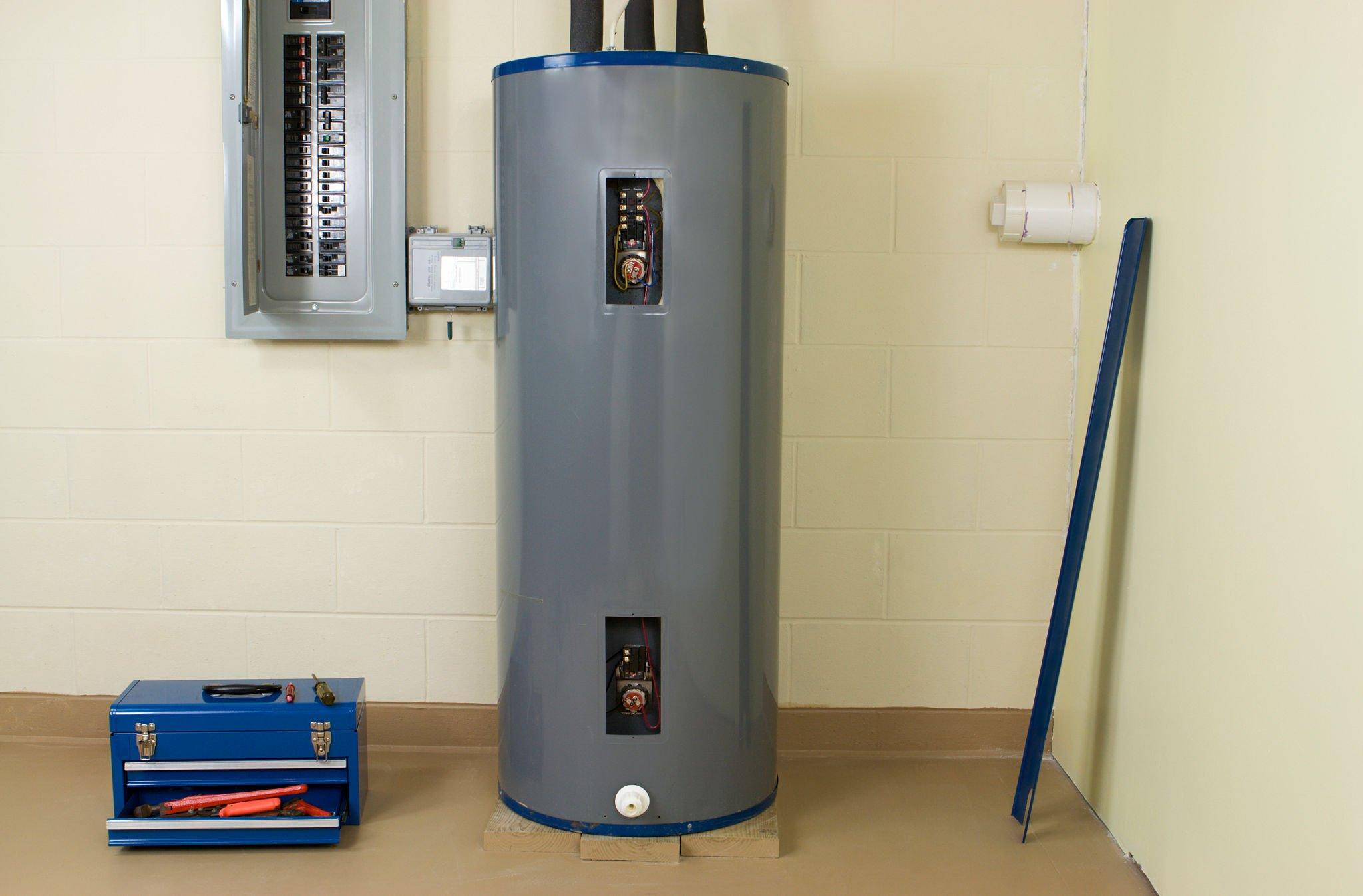No Hot Water in Apartment Laws
If your landlord doesn’t provide hot water in your apartment, you have rights as a tenant. New York State’s Division of Homes and Community Renewal has the authority to freeze or reduce your rent if you don’t have enough hot water. If your landlord does this, you may be entitled to compensation.
The laws on notice for no hot water in an apartment vary state by state, but we can give you a few general guidelines to help you figure out if your situation is legally covered.
Suppose your landlord has been cited by the local code enforcement agency for lack of hot water or has failed to provide hot water in a reasonable period (more than one day) after being notified that the heating system is broken. In that case, that’s against the law! You can contact our legal team for more information on how to go about filing a claim with your local housing authorities.
This is true for all states, but specific state laws and local codes may vary, so check with your state’s housing and community development department. For example, in California, according to the State Department of Housing and Community Development, the landlord must provide an operable heater or hot water source in every living space unless there are heaters in each room or bathroom.
Only seven states (New York, Maryland, Connecticut, Hawaii, Massachusetts, Vermont, and Colorado) require landlords to provide hot water for bathing. Ditto for the District of Columbia and Philadelphia.
Tenant Rights
You have several legal options if your landlord fails to comply with apartment laws regarding hot water. For instance, you can withhold your rent until the problem is fixed and deposit the rent with the court if the landlord starts nonpayment rent proceedings. In either case, you can get the deposit back if you win.
If the problem is not immediately resolved, you should contact the local police or health department to make a complaint. You may also sue your landlord for breach of the habitability warranty, which requires the landlord to provide the service. In addition, you may also decide to start an HP proceeding in housing court, which stands for Housing Part, to get your landlord to fix the problem.
Alternatively, you can file a complaint with the City Building Department or County Health Department, requesting a decrease in rent. If the problem is building-wide, you should attach the schedule of other tenants to your complaint. In either case, you should file Form RA-84 with the appropriate agency.
If you live in New York, you can call the Mayor’s Office for Tenants for free legal advice. The office also provides a website and a Contact Us form for tenants. Further, many free legal services are available to tenants in New York. A quick search online will lead you to helpful information.
Tenants have the right to a safe and healthy living environment. This includes hot water. If you discover a leak in a pipe, you have the right to hold your landlord responsible for the repair. If the landlord fails to provide a fix, the tenant is responsible for paying for it.
If your landlord doesn’t respond to your complaints, you can also file complaints with the Environmental Health Department. This department can serve Improvement Notices on landlords that require them to carry out necessary repairs and meet minimum standards for private rental housing. If your landlord still refuses to provide hot water, you may have a compensation case.
As a tenant in New York, your right to hot water is a fundamental right. Therefore, you should expect your landlord to supply at least 120 degrees Fahrenheit water. If your landlord doesn’t meet this requirement, you can withhold your rent until your landlord complies with your complaint.
Legal Remedies for Landlords Who don’t Provide it
There are many options for tenants who find that their landlords don’t provide hot water in their apartments. First, they can contact 311 to report the problem. If the landlord fails to respond, they can also contact the local health board and file a complaint with the court. This legal action requires the landlord to provide hot water and heat and may result in stiff penalties, including fines and jail time.
Another option for tenants is to file a complaint with the city agency that administers rent laws. Alternatively, they can file a lawsuit against their landlord to compel them to fix the problem. In some cases, the city may make the repairs if they are deemed an emergency.
Another option for tenants is to withhold their rent if the landlord fails to fix a significant problem. They can also take their security deposit to cover the cost of repairs. In some cases, the landlord’s failure to provide hot water may also violate the warranty of habitability. This could leave an apartment unsafe, unclean, or unlivable.
If the landlord doesn’t provide hot water, the tenant may choose to withhold rent while repairs are being made. However, tenants have no legal requirement to withhold their rent, which may lead to problems with the landlord. A tenant should consult a local housing code inspector before taking this action to avoid losing the rent.
No Hot Water in Apartment Laws
If your landlord doesn’t provide hot water in your apartment, you have rights as a tenant. New York State’s Division of Homes and Community Renewal has the authority to freeze or reduce your rent if you don’t have enough hot water. If your landlord does this, you may be entitled to compensation.
The laws on notice for no hot water in an apartment vary state by state, but we can give you a few general guidelines to help you figure out if your situation is legally covered.
Suppose your landlord has been cited by the local code enforcement agency for lack of hot water or has failed to provide hot water in a reasonable period (more than one day) after being notified that the heating system is broken. In that case, that’s against the law! You can contact our legal team for more information on how to go about filing a claim with your local housing authorities.
This is true for all states, but specific state laws and local codes may vary, so check with your state’s housing and community development department. For example, in California, according to the State Department of Housing and Community Development, the landlord must provide an operable heater or hot water source in every living space unless there are heaters in each room or bathroom.
Only seven states (New York, Maryland, Connecticut, Hawaii, Massachusetts, Vermont, and Colorado) require landlords to provide hot water for bathing. Ditto for the District of Columbia and Philadelphia.
Tenant Rights
You have several legal options if your landlord fails to comply with apartment laws regarding hot water. For instance, you can withhold your rent until the problem is fixed and deposit the rent with the court if the landlord starts nonpayment rent proceedings. In either case, you can get the deposit back if you win.
If the problem is not immediately resolved, you should contact the local police or health department to make a complaint. You may also sue your landlord for breach of the habitability warranty, which requires the landlord to provide the service. In addition, you may also decide to start an HP proceeding in housing court, which stands for Housing Part, to get your landlord to fix the problem.
Alternatively, you can file a complaint with the City Building Department or County Health Department, requesting a decrease in rent. If the problem is building-wide, you should attach the schedule of other tenants to your complaint. In either case, you should file Form RA-84 with the appropriate agency.
If you live in New York, you can call the Mayor’s Office for Tenants for free legal advice. The office also provides a website and a Contact Us form for tenants. Further, many free legal services are available to tenants in New York. A quick search online will lead you to helpful information.
Tenants have the right to a safe and healthy living environment. This includes hot water. If you discover a leak in a pipe, you have the right to hold your landlord responsible for the repair. If the landlord fails to provide a fix, the tenant is responsible for paying for it.
If your landlord doesn’t respond to your complaints, you can also file complaints with the Environmental Health Department. This department can serve Improvement Notices on landlords that require them to carry out necessary repairs and meet minimum standards for private rental housing. If your landlord still refuses to provide hot water, you may have a compensation case.
As a tenant in New York, your right to hot water is a fundamental right. Therefore, you should expect your landlord to supply at least 120 degrees Fahrenheit water. If your landlord doesn’t meet this requirement, you can withhold your rent until your landlord complies with your complaint.
Legal Remedies for Landlords Who don’t Provide it
There are many options for tenants who find that their landlords don’t provide hot water in their apartments. First, they can contact 311 to report the problem. If the landlord fails to respond, they can also contact the local health board and file a complaint with the court. This legal action requires the landlord to provide hot water and heat and may result in stiff penalties, including fines and jail time.
Another option for tenants is to file a complaint with the city agency that administers rent laws. Alternatively, they can file a lawsuit against their landlord to compel them to fix the problem. In some cases, the city may make the repairs if they are deemed an emergency.
Another option for tenants is to withhold their rent if the landlord fails to fix a significant problem. They can also take their security deposit to cover the cost of repairs. In some cases, the landlord’s failure to provide hot water may also violate the warranty of habitability. This could leave an apartment unsafe, unclean, or unlivable.
If the landlord doesn’t provide hot water, the tenant may choose to withhold rent while repairs are being made. However, tenants have no legal requirement to withhold their rent, which may lead to problems with the landlord. A tenant should consult a local housing code inspector before taking this action to avoid losing the rent.




